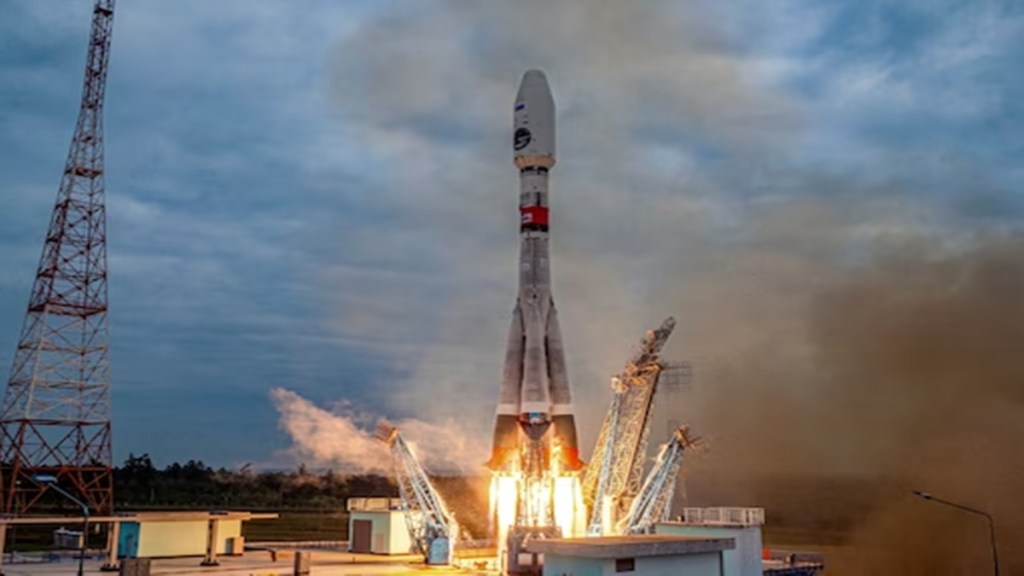Russia has reported an unexpected setback in its lunar mission, Luna-25, which was launched earlier this month. The nation’s space agency, Roscosmos, disclosed that the spacecraft faced an unspecified issue while attempting to enter its pre-landing orbit. Roscosmos experts are currently analyzing the situation.
In a statement posted on Telegram, Roscosmos explained, “During the operation, an abnormal situation occurred on board the automatic station, which did not allow the maneuver to be performed with the specified parameters.” The agency did not provide specific details about whether this incident will hinder Luna-25‘s planned lunar landing.
The spacecraft is scheduled to touch down on the moon’s south pole on Monday, with a race against an Indian spacecraft aiming for a similar landing. The lunar south pole holds special significance for scientists, who believe that its permanently shadowed craters might contain water. This frozen water could potentially be converted into air and rocket fuel by future explorers.
On the same day as the technical issue, Luna-25 yielded its first data. While Roscosmos stated that this information is undergoing analysis, preliminary findings include data about the chemical composition of lunar soil and the detection of a “micrometeorite impact.” Roscosmos also released images captured by the spacecraft of the Zeeman crater, the moon’s third-largest crater in the southern hemisphere, measuring 190 kilometers (118 miles) in diameter and eight kilometers (five miles) deep.
The launch of Luna-25 from Russia’s Vostochny spaceport on August 10 marked Russia’s first lunar mission since 1976 when it was part of the Soviet Union. This mission was originally intended to carry a small moon rover, but this plan was abandoned to enhance the craft’s reliability by reducing its weight.
Roscosmos has expressed its desire to demonstrate Russia‘s capability to deliver payloads to the moon and ensure guaranteed access to the lunar surface, particularly in light of sanctions limiting its access to Western technology. The Luna-25 mission holds strategic importance for Russia’s space ambitions, backed by President Vladimir Putin, to establish Russia as a space superpower and transition Russian launches away from the Baikonur Cosmodrome in Kazakhstan.
Notably, only three governments—Soviet Union, United States, and China—have successfully landed on the moon. Both India and Russia are vying to be the first to reach the moon’s south pole. India’s previous attempt to land at the moon’s south pole in 2019 ended in failure when its lander crashed during descent.
(With AP Inputs)

